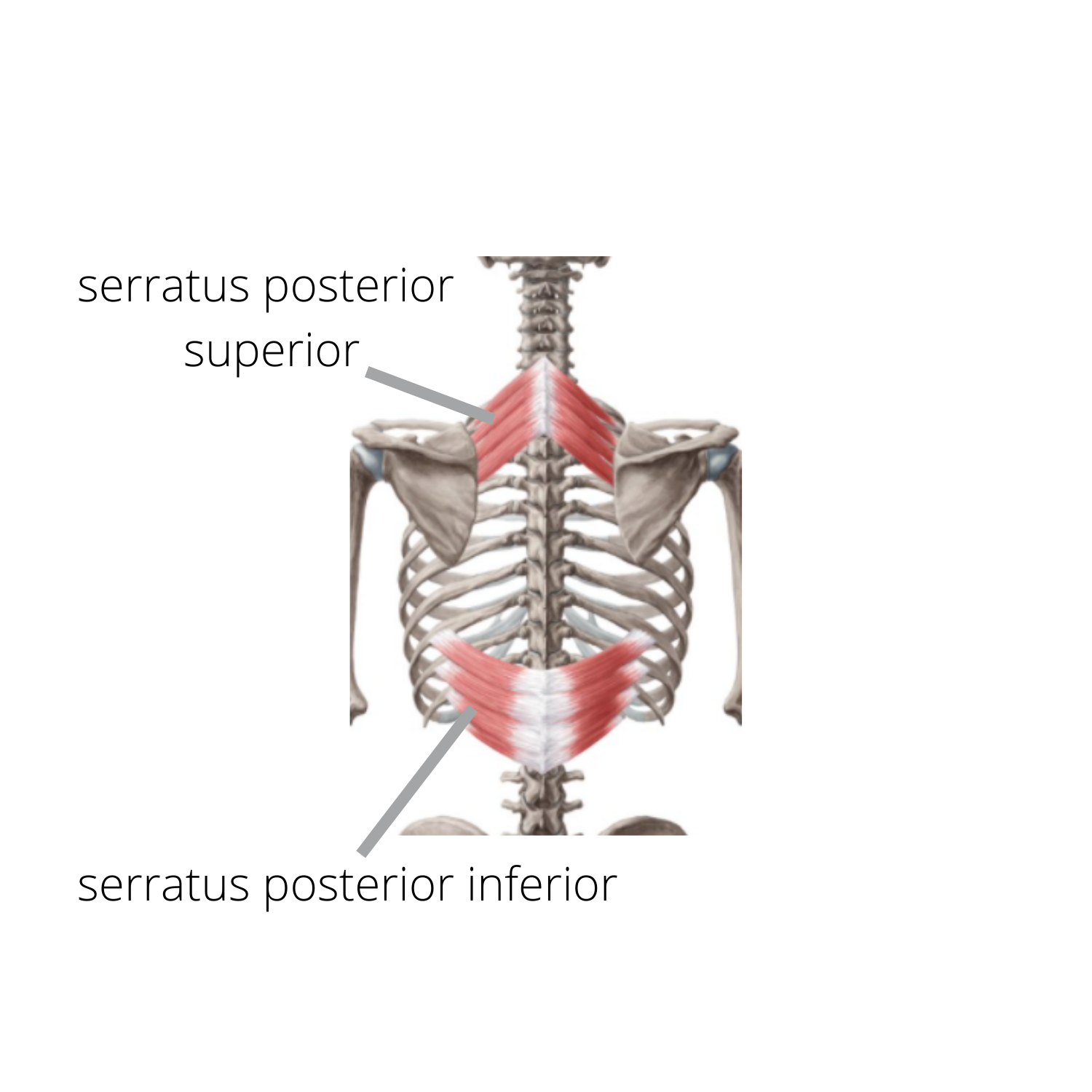Coughing and Back Pain
I recently had bronchitis and had several days of intense coughing. Shortly afterwards, I developed upper and lower back pain. I even started getting mild numbness in the pinky finger on that same side. It happened to be my left side. The pain extended up into my neck as well and felt like a deep ache. Tell a healthcare provider this set of symptoms, and they are instantly going to be worried about a heart attack. Lucky for me, it was just an irritated muscle.
The serratus posterior is a deep muscle, and lies underneath the big upper traps. It connects the vertebrae (C7-T2 or T3) to the ribs 2-5. It’s job is to elevate the ribs so it’s active in respiration. With all of my coughing fits, those muscles were working hard and went into overuse. I also tend to be stiff in my thoracic spine, so with the muscle rapidly contracting, coupled with the fact that one end of the muscle is tethered down to a stiff vertebrae, it quickly got irritated. I also developed pain in the lower serratus posterior inferior muscle, but I’m not stiff in the lumbar spine so this pain went away on its own.
So how did I solve this? Mostly by working on mobilizing the irritated muscle, my thoracic mobility, and with breathing. Let’s break it down:
I first wanted to desensitize the irritated tissue because I could barely turn my head or lift my arm overhead, so I layed on a foam roller in the direction of the muscle fiber and worked on those two movements. I turned my head slowly from side to side. Each time I got to my end range, I made sure to take several deep breaths. Each repetition, I aimed for more range of motion. Then I did the same process but this time I reached overhead with my arm. It took about 5 minutes.
My upper back tends to be stiff in extension and rotation. So I did these two drills:
Then to finish everything off, I just layed down on my back and worked on some breathing drills. I focused on a long exhale as this is the eccentric phase of the muscle; so in other words, it elongated it. Within 10 minutes or so, I was pain free and my range of motion was restored.
This is a perfect example of how precision can make all the difference in a rapid recovery.


